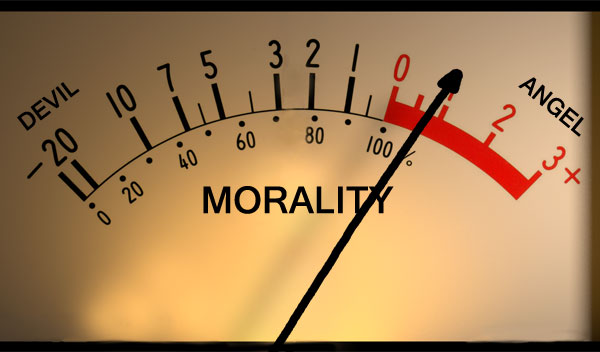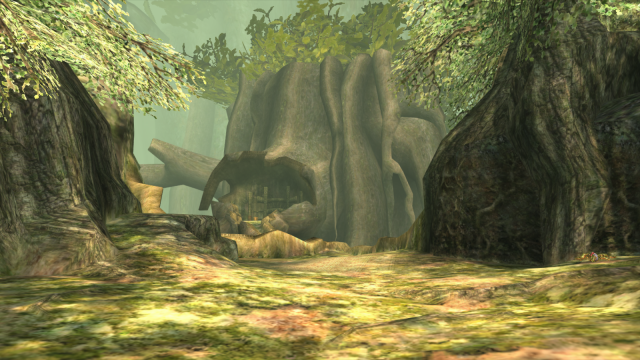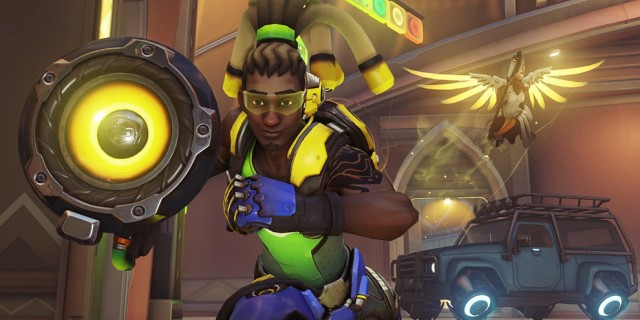The fall semester began last week at Purdue, and I’ve been spending some time this past week catching up with other members of my cohort and meeting with professors to discuss my research goals. And I’ve been thinking about a few things as a result of these conversations—conversations that, of course, always turn to the subject of video games.
 It seems that a lot of the people I’ve been talking to seem to think that I research games because I know a lot about them. They seem to think that I’ve embarked on the study of games because I’m already an expert. But such assumptions couldn’t be further from the truth.
It seems that a lot of the people I’ve been talking to seem to think that I research games because I know a lot about them. They seem to think that I’ve embarked on the study of games because I’m already an expert. But such assumptions couldn’t be further from the truth.
I study games because I don’t know as much about them as I’d like. Because I don’t feel like an expert and because I want to know more.
As I read over those last lines, I wonder if such a disclosure is controversial in any way. It might seem so, especially since gaming culture and identities seem to be predicated on the idea of expertise, of extensive knowledge of gaming history or game mechanics. But I think there’s a lot to unpack when we think about the various connotations or constructions of expertise.
I also wonder if people might write off such a disclosure as some sort of product of impostor syndrome. That I think these things because I think I’m some sort of fraud. And that’s definitely not the case. I mean, okay, sure, I’ll admit that I do suffer from bouts of impostor syndrome from time to time, but that’s a conversation for another day. And I don’t think that’s what’s going on here, specifically. So let’s push that to the side.
 Rather, I think my feeling that I don’t know as much about games as I should stems from my positionality and from the fact that I work within the field of literature. I’ve briefly mentioned my entrenchment within the area of literary studies in past posts, and I think that teasing out the implications of my location within this field can help me explain where I’m going with all this.
Rather, I think my feeling that I don’t know as much about games as I should stems from my positionality and from the fact that I work within the field of literature. I’ve briefly mentioned my entrenchment within the area of literary studies in past posts, and I think that teasing out the implications of my location within this field can help me explain where I’m going with all this.
As I’ve mentioned previously, as a Ph.D. candidate in the English Department at Purdue, I work within the area of 20th and 21st century literature. But, more specifically, my research focuses on video games as a form of contemporary narrative because, ultimately, I think that those of us operating within the field of literary studies could benefit from the incorporation of video games into our work. In other words, by thinking about how video games tell stories and by thinking about how video games might allow us to consider the manner in which narrative forms evolve, the academic discourse of the literature department might, then, have the opportunity to evolve along with the narratives being discussed.
What I find interesting, though, is the fact that, when I discuss the above with other people who work within the field of literature, they often seem to think that any feedback or guidance they might give me wouldn’t be helpful because, as they often confess, they don’t know much about video games. But I don’t agree—I find conversations with such people to be vital. For a couple reasons.
 First of all, these are exactly the people (although not the only people) to whom I hope my work might speak—people (and I’m including myself among their number) who could benefit from learning more or from expanding the way we think about narrative. But I also think that such conversations are important because of issues of exclusion and access. Why should people be excluded from such a conversation or feel like they don’t have access to it because it doesn’t fall into their “area of expertise”? Why can’t, instead, we promote openness to engaging in a dialogue–to learning from each other–and how might we all better facilitate such openness? And, extending this line of thinking, what does the general reluctance to engage in such conversations say about the way that games are being talked about and who talks about them? And what does this all say about the way that discourse occurs in academia?
First of all, these are exactly the people (although not the only people) to whom I hope my work might speak—people (and I’m including myself among their number) who could benefit from learning more or from expanding the way we think about narrative. But I also think that such conversations are important because of issues of exclusion and access. Why should people be excluded from such a conversation or feel like they don’t have access to it because it doesn’t fall into their “area of expertise”? Why can’t, instead, we promote openness to engaging in a dialogue–to learning from each other–and how might we all better facilitate such openness? And, extending this line of thinking, what does the general reluctance to engage in such conversations say about the way that games are being talked about and who talks about them? And what does this all say about the way that discourse occurs in academia?
 Ultimately, for me, video games—like any other text—don’t exist in a vacuum. Nor should any other discussion occurring in literature departments. So I like to think of my research as a way to interrogate how we might bridge the gap between things like literary studies and game studies, how we might think about how such areas inform and converse with each other. Because it’s not just the narrative that matters but also how we interact with it. It’s about the cultural context surrounding it. It’s about making connections to other things and it’s about thinking through things like representation, how we tell stories, and how we engage with all of the above. It’s about starting a conversation.
Ultimately, for me, video games—like any other text—don’t exist in a vacuum. Nor should any other discussion occurring in literature departments. So I like to think of my research as a way to interrogate how we might bridge the gap between things like literary studies and game studies, how we might think about how such areas inform and converse with each other. Because it’s not just the narrative that matters but also how we interact with it. It’s about the cultural context surrounding it. It’s about making connections to other things and it’s about thinking through things like representation, how we tell stories, and how we engage with all of the above. It’s about starting a conversation.
And I know I’m not the only person having this conversation. Yet, I do also feel like I’ve newly entered it. But let’s be clear—I don’t think that such an admission means I should be excluded from discussions about games either, just as I hope my own articulations don’t block access to others. Yes, I feel like there’s a lot more for me to learn, just like there’s a lot more for everyone to learn. Which is why I do the research work that I do—because, at the end of the day, games are fun and they’re challenging and thinking critically about them allows me to consider things in ways I may not have before.




